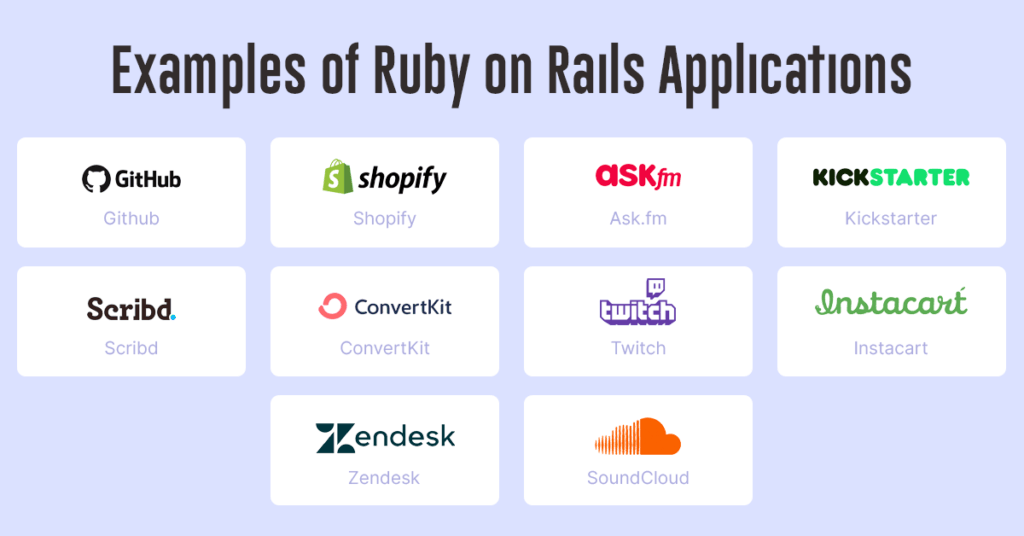CCJ In Heng Insights
Explore the latest trends and insights across diverse topics.
Ruby on Rails: The Unexpected Hero of Rapid Web Development
Discover why Ruby on Rails is transforming web development with speed and elegance. Unleash the hero your projects need today!
Why Ruby on Rails is the Go-To Framework for Startups and MVPs
Ruby on Rails has emerged as the go-to framework for startups and MVPs (Minimum Viable Products) due to its efficiency and speed in development. Startups often have limited resources and tight timelines, which makes Ruby a perfect fit. The framework promotes rapid prototyping and enables developers to build and iterate quickly, allowing businesses to test their ideas in the market without heavy investments. Features like Convention over Configuration minimize the need for extensive configuration, allowing teams to focus on what truly matters—delivering a product that meets customers' needs.
Moreover, the Ruby on Rails community is a vibrant ecosystem filled with rich resources, libraries, and tools that can accelerate development. Incorporating third-party services and APIs is seamless, thanks to the plethora of gems. Additionally, the framework's built-in testing features facilitate a robust testing environment, enabling startups to ensure the quality of their MVPs before launch. With its rich documentation and helpful community, Ruby on Rails provides startups with the support they need to succeed in a competitive landscape.

Unveiling the Power of Convention over Configuration in Ruby on Rails
Convention over Configuration is a fundamental principle in Ruby on Rails, aiming to reduce the number of decisions developers need to make. By adhering to established conventions, Rails allows developers to focus on building application features rather than dealing with the intricacies of configuration files. This results in quicker development times and a more streamlined codebase.
To illustrate the significance of this principle, consider a simple example: when creating a new model in Rails, if you name your class User, Rails automatically assumes the corresponding database table will be named users. This kind of implicit understanding fosters productivity and enhances collaboration among team members, as everyone can rely on the framework’s conventions. For further reading on this powerful design philosophy, visit Medium for insights and practical applications.
How Ruby on Rails Streamlines the Web Development Process: Key Benefits
Ruby on Rails is a powerful web application framework that enhances the web development process through a variety of features aimed at increasing productivity and efficiency. One of its key benefits is the use of convention over configuration, which allows developers to follow standardized conventions rather than writing extensive configuration files. This streamlining reduces the amount of code necessary to get a project off the ground. Additionally, the built-in scaffold generator allows developers to quickly create basic application features, facilitating a rapid prototyping process that is essential for modern web development.
Another significant advantage of using Ruby on Rails is its comprehensive ecosystem. The framework comes with a plethora of gems—libraries that extend the functionality of the core framework—enabling developers to add features without reinventing the wheel. This extensive library support means that teams can devote more time to crafting unique aspects of their applications rather than spending time on repetitive tasks. Testing is also integral to the Rails framework, with built-in tools like RSpec and Minitest, which promote test-driven development and help ensure code reliability and quality over the project's lifespan. For further insights, check out this informative article on 10 Reasons to Use Ruby on Rails.